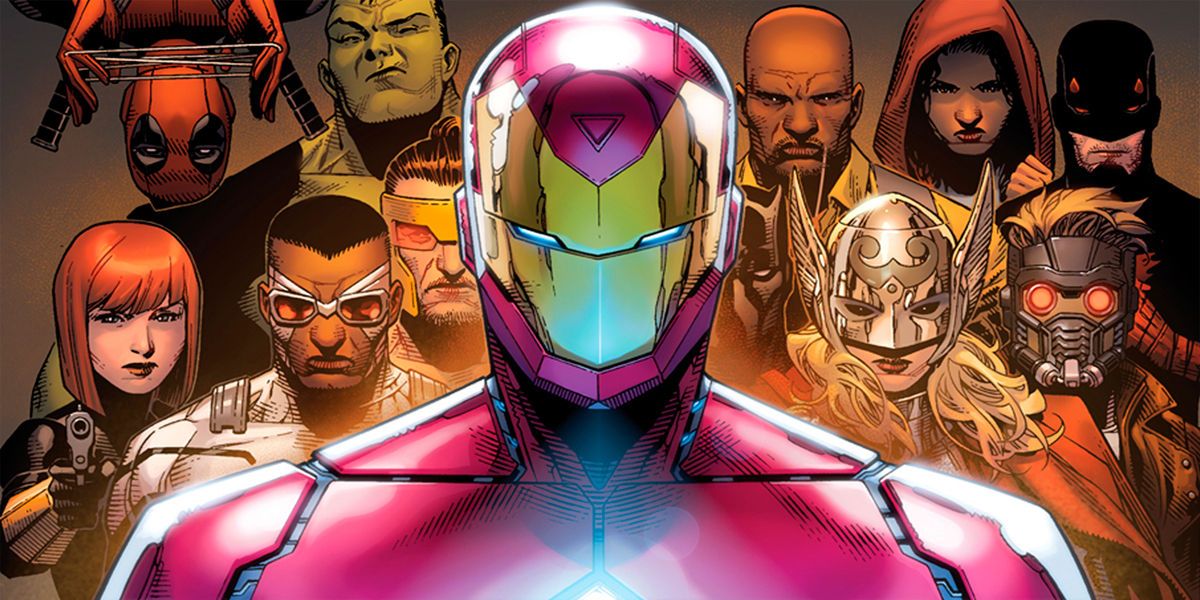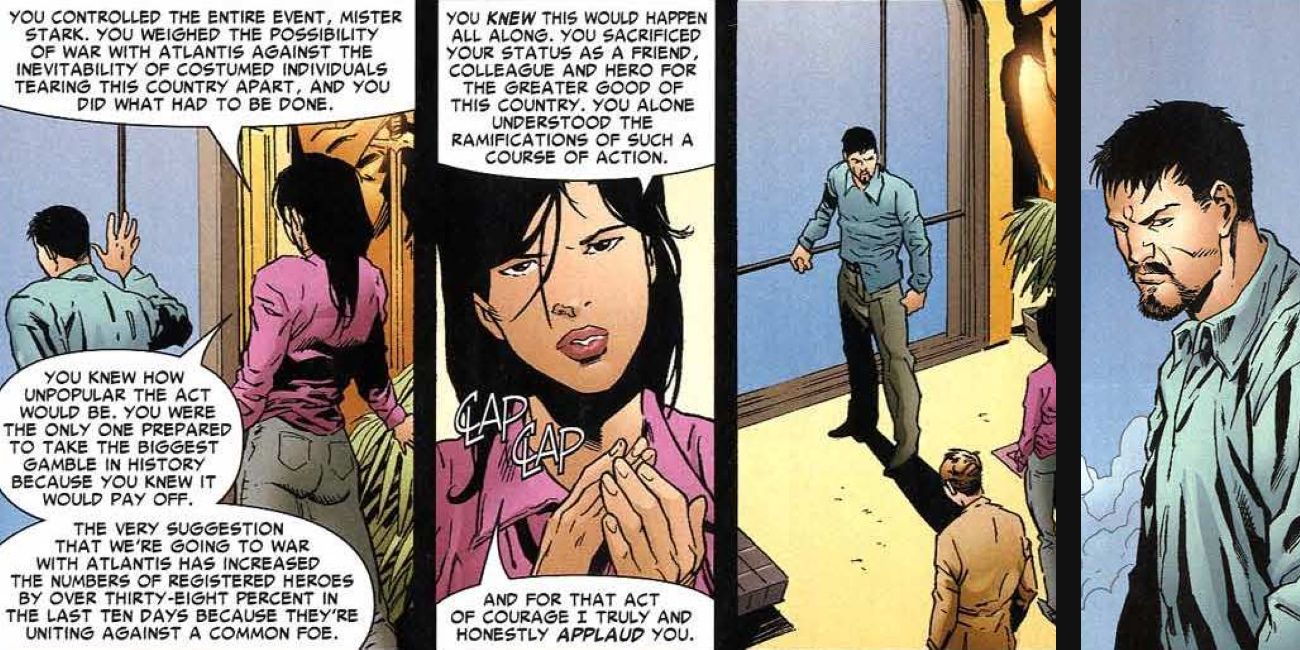Marvel's Civil War event was a crossover event of massive repercussions. Pitting hero against hero, icon against icon, it tore the Marvel comics universe apart and challenged the status quo of all characters involved. But in working towards ending the conflict, one hero nearly crossed a line that would have made him one of the most cunning villains in the Marvel canon.
The Superhuman Registration Act worked to publicly identify masked superheroes and vigilantes, and to keep the United States government apprised of their actions and locations, while only government-sanctioned heroes (and those who opposed them) were left relatively unmolested. Opposed to the Act was Captain America, who resented being involved in a S.H.I.E.L.D. task force entrusted to pursue and capture those in defiance of registering with the government. This leads to Captain America being pursued as a fugitive, and leading an underground resistance known as the Secret Avengers. And in hindsight. making Tony Stark even more of a villain than fans thought.
In Civil War Front Line #11, reporters Ben Urich and Sally Floyd confront Tony Stark at Stark Industries. After interviewing Captain America to gain his perspective on whether his conflict was worth damage inflicted, they are granted an interview. Captain America is revealed to be remorseful of how long the conflict has lasted, especially considering that he is upholding a vision of the United States that no longer exists, and to which he has little in common. Tony Stark, on the other hand, is confronted with evidence that an attack by Green Goblin on an Atlantean peace delegation was in fact orchestrated by Stark himself.
Urich learns that Green Goblin was being manipulated through nanites injected into his blood, and nearly sparked a war with Atlantis by attacking a delegation Luckily, he was stopped before war broke out, but not before certain stocks were manipulated and redirected through several offshore charities --- for victims of the superhuman civil war, as WELL as registered heroes and their families --- to the sum of roughly $90 million. While Stark had constructed a massive super-powered prison to house those in defiance of the Registration Act, the fund was being used as an incentive: lock up some super-powered heroes for a while, and use the prospect of amnesty and reparations to convince them to register themselves, while simultaneously testing out the capabilities of a supermax prison for superpowered individuals. Kill two birds with one stone.
Here, Tony Stark comes off as just as devious as another comic-book villain, Ozymandias, from Watchmen (although without the follow-up discovery by the public). The threat of war with Atlantis convinced more un-rergistered superheroes to sign up for the Registration Act. The prospect of a costly war gave superheroes a potential common enemy against which to unite. Weighing the options, Stark gambled that more heroes would want to unite, than to continue fighting recklessly and causing more damage to the country. But it's a gamble that was a huge risk; ultimately, Urich and Floyd keep the revelation to themselves. It's one of the more surprising moves from one of Marvel's most popular heroes due purely to the risk it posed had it failed, and cemented the Civil War event as one of the most consequential in the history of the Marvel universe.


